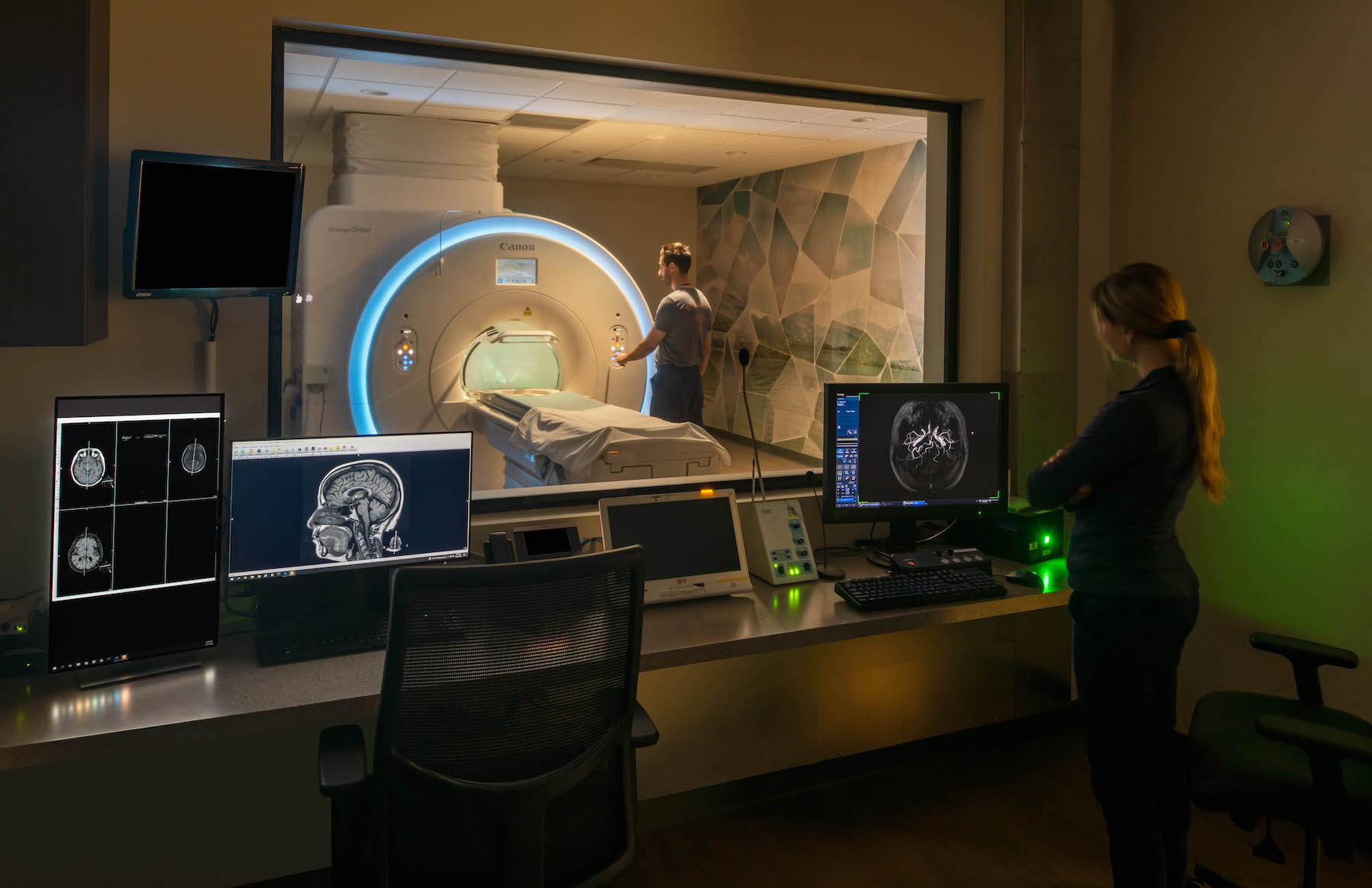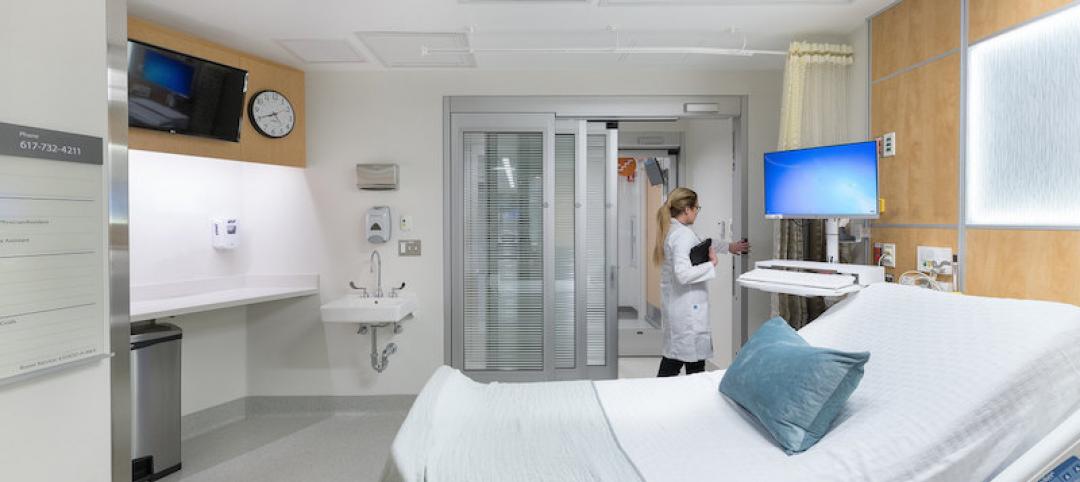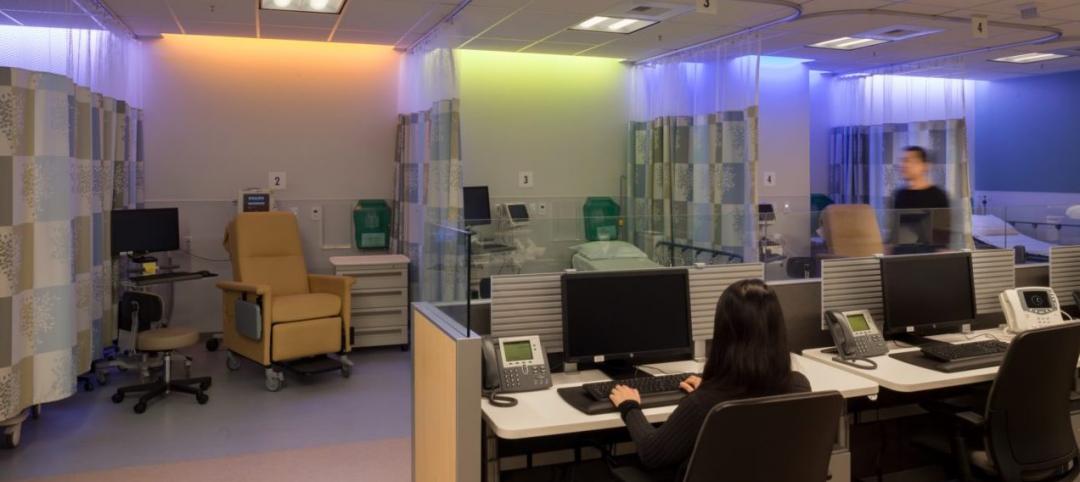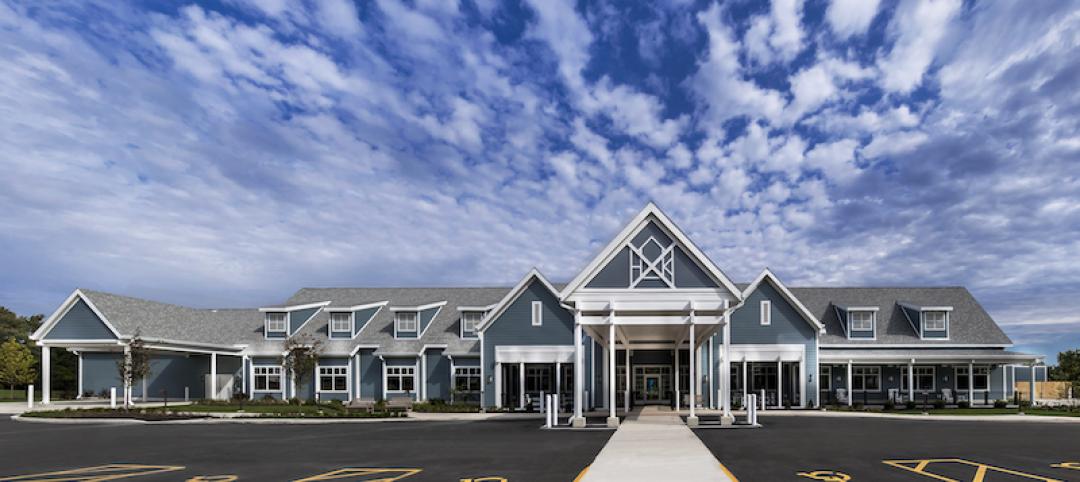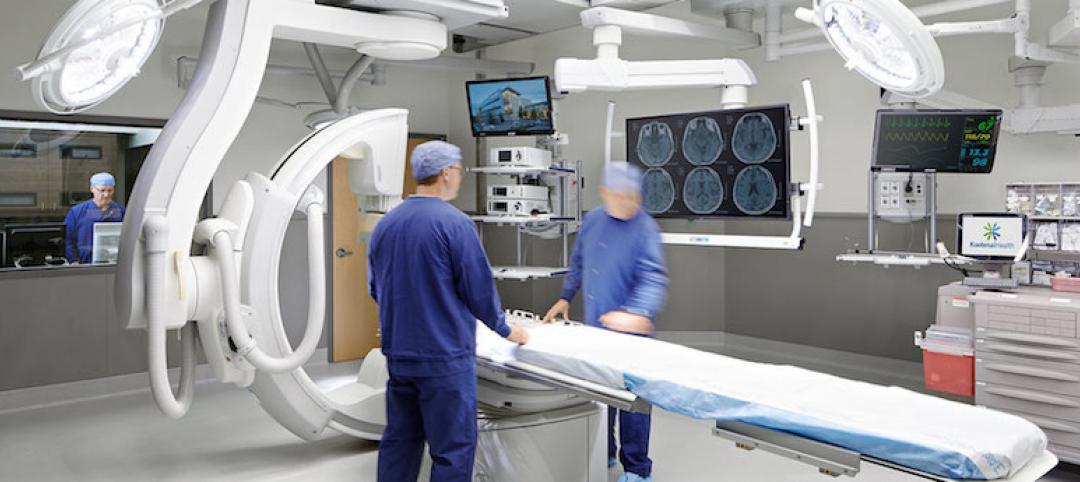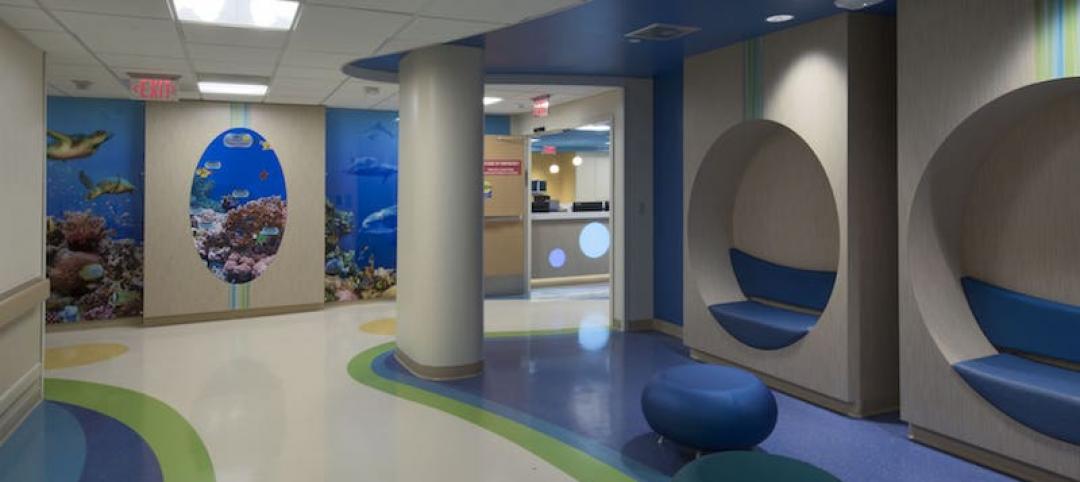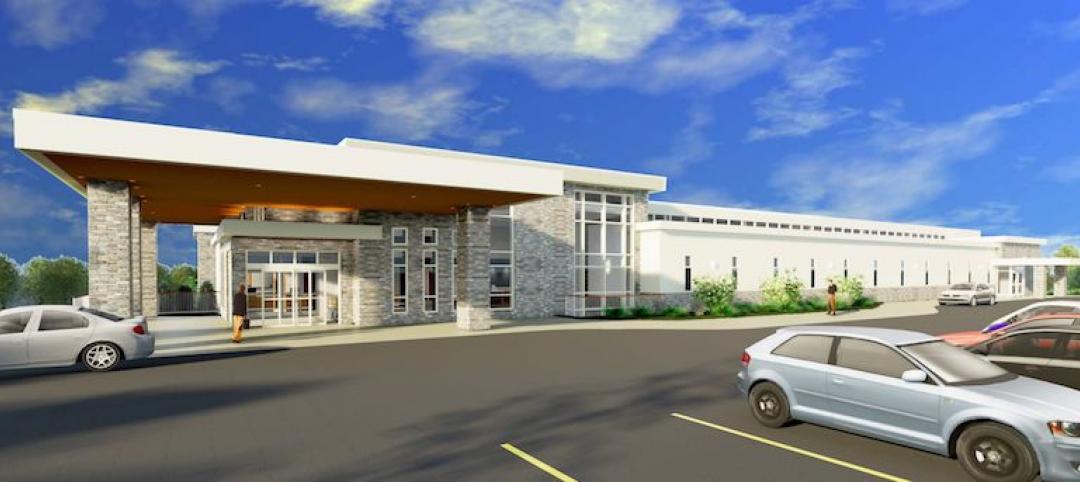Last October, the Edward-Elmhurst Health system opened a 36,100-sf multi-specialty clinic in the Chicago suburb of Woodridge, Ill., on what had been an undeveloped intersection of two busy roads that sees an estimated 55,000 cars per day. The leased building—whose lot was zoned originally for a Walgreens—is near a senior living facility, a gas station across the street, and a forest preserve.
The general contractor Ryan Companies, which owns this building and constructed it from designs by Jensen & Halsted, has benefited from the ongoing trend among healthcare systems wanting to place hospitals, clinics, and medical offices within office-retail corridors that, despite rising vacancy rates during the coronavirus pandemic, still promise exposure to ample vehicular and foot traffic.
The point of such placements, explains Curt Pascoe, Ryan Companies’ Director of Real Estate Development in Chicago, is to make healthcare “more accessible and visible in a highly competitive marketplace.” He describes this as the “retailization” of healthcare that enhances customer convenience. And while this trend has been evident for a while, Pascoe expects it to accelerate as the healthcare sector continues to consolidate with an eye toward bringing care closer to where patients live.
The Edward-Elmhurst Health Center is the second facility that Ryan has built in partnership with that health system, which recently merged with NorthShore University HealthSystem. The Woodridge center includes a walk-in clinic, and services for behavioral health, physical therapy, laboratory, and diagnostic imaging. It also has offices for primary care physicians and specialists.
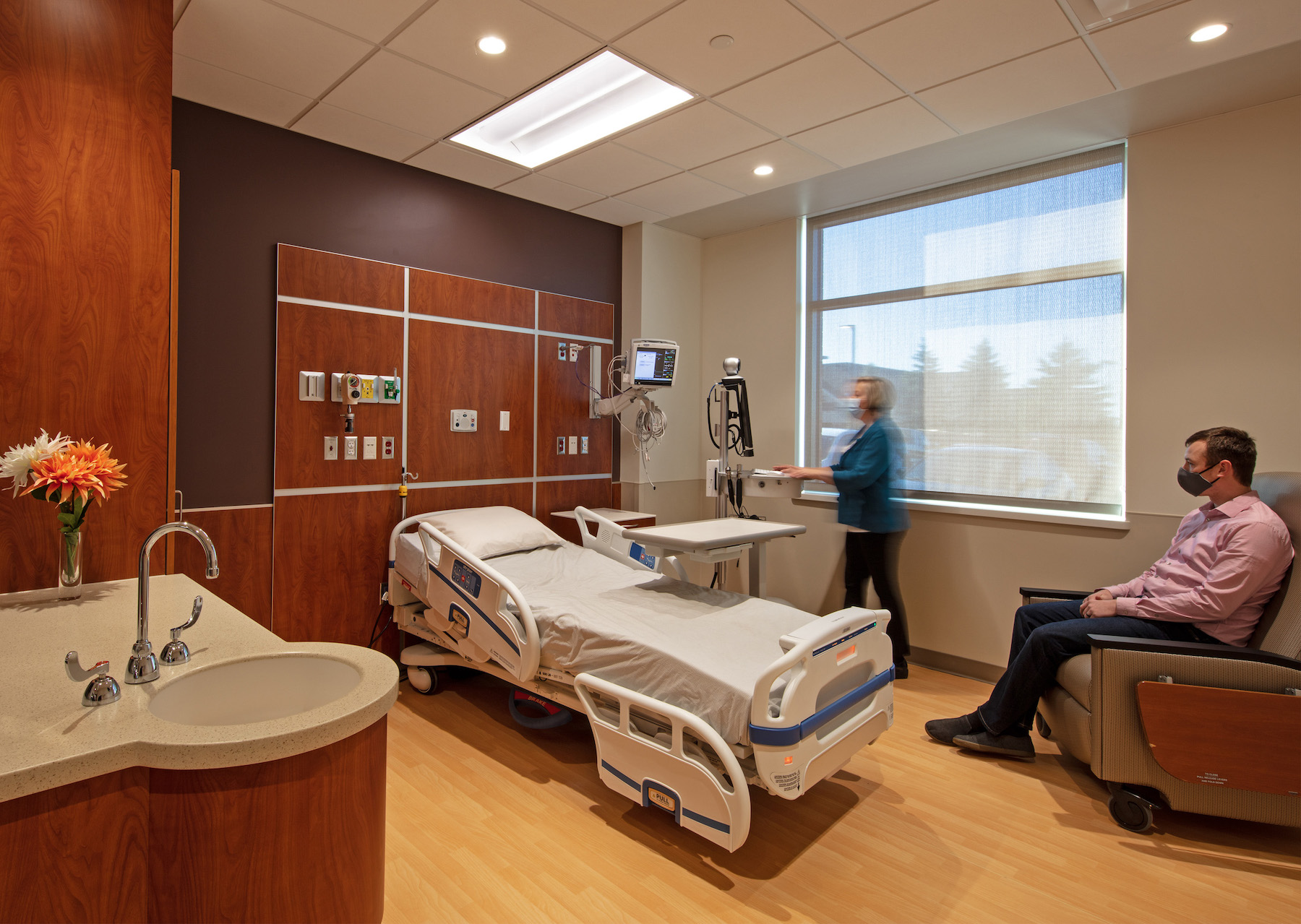
Ryan Companies, which is based in Minnesota, has been engaged by several Midwestern healthcare clients on similar projects that it has recently completed or has in the works. They include:
• A core-and-shell reconstruction of a two-story, 50,000-sf building as part of the redevelopment of the Oakmont Point office park in Westmont, Ill. Compass Health Center, a behavioral health provider, leased the entire building, which opened last August as the second anchor tenant in this 18-acre complex. Designed by Chicago-based Wright Heerema Architects, the building features a 15-foot clear height with floor-to-ceiling windows that overlook a four-acre pond. The center provides psychiatric care for children and adults. Pascoe says this building is situated off a major highway, and the surrounding office park includes several other medical-related facilities.
• Last December, on Port Washington Road in Mequon, Wis., a Milwaukee suburb, Ryan completed construction of the Froedtert & Medical College of Wisconsin Community Hospital, a 17,000-sf microhospital designed by Eppstein Uhen Architects with eight in-patient beds and seven emergency department beds. This microhospital is across the street from the 89,300-sf Froedtert Mequon Health Center, which Ryan developed in 2017.
Mequon is on Lake Michigan’s western shore, where there has been considerable commercial and residential development along Interstate 43, with more planned. To overcome the challenge of finding a suitable site in this area, Ryan Companies combined two former residential parcels, secured zoning changes, and obtained multiple easements. The microhospital is scheduled to open during the first half of this year.
“Our development team hit it out of the park with site selection and meeting with neighbors concerned about impact, while navigating complex municipal permitting,” says Pascoe. Ryan Companies had built a similar 18,100-sf microhospital in Pewaukee, Wis., for this healthcare system, which opened in December 2020.
Pascoe couldn’t discuss other healthcare facilities near retail-office corridors that his firm is currently involved with, except to note that a lot of these so-called off-campus facilities deliver care at lower costs, and can be built less expensively. (He declined to provide construction costs for the abovementioned projects.) While all of Ryan’s recent healthcare projects have been new builds, Pascoe acknowledges the opportunities that adaptive reuse might present to healthcare clients in the future.
Related Stories
Healthcare Facilities | Mar 27, 2019
Working to reduce HAIs: How design can support infection control and prevention
For many health systems, seeking ways to mitigate HAIs and protect their patients is a high priority.
Healthcare Facilities | Mar 6, 2019
What is the role of the architect in healthcare data security?
Safeguarding sensitive data is top of mind for healthcare administrators across the country, and, due to the malicious intents of hackers, their security efforts are never-ending.
Healthcare Facilities | Feb 20, 2019
A new hospital in Qatar reflects local culture in its design
Three ceramic-clad sails transport its exterior.
Healthcare Facilities | Jan 31, 2019
First phase of SickKids campus redevelopment plan unveiled
The Patient Support Centre will be the first project to comply with Toronto’s Tier 2 Building Standards.
Healthcare Facilities | Dec 12, 2018
Almost Home Kids opens third residence in Illinois for children with health complexities
Its newest location is positioned as a prototype for national growth.
Healthcare Facilities | Dec 7, 2018
Planning and constructing a hybrid operating room: Lessons learned
A Hybrid operating room (OR) is an OR that is outfitted with advanced imaging equipment that allows surgeons, radiologists, and other providers to use real-time images for guidance and assessment while performing complex surgeries.
Healthcare Facilities | Nov 30, 2018
As telehealth reshapes patient care, space and design needs become clearer
Guidelines emphasize maintaining human interaction.
Healthcare Facilities | Nov 28, 2018
$27.5 million renovation of Salah Foundation Children’s Hospital completes in Fort Lauderdale
Skanska USA built the project.
Healthcare Facilities | Nov 7, 2018
Designing environments for memory care residents
How can architecture decrease frustration, increase the feeling of self-worth, and increase the ability to re-connect?
Healthcare Facilities | Oct 30, 2018
Orthopedic Associates of Hartford unveils plans for 45,000-sf surgical center
MBH ARCHITECTURE is the architect for the project.


